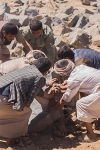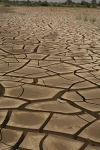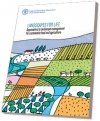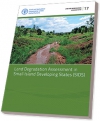News

20/03/2018
New FAO study urges avoiding "mutual aggravation" of links between water scarcity and migration
Global water use has increased by a factor of six over the past century, twice the rate of population growth, and its scarcity is now a looming human challenge due to a host of factors ranging from climate change and pollution to lack of capacity and infrastructure.
In a video message...

15/03/2018
Asia hardest hit region, says report on the burden borne by poor farmers due to natural disasters
Natural disasters are costing farmers in the developing world billions of dollars each year, with drought emerging as the most destructive in a crowded field of threats that also includes floods, forest fires, storms, plant pests, animal diseases outbreaks, chemical spills and toxic algal blooms.
According to a new report from...

19/02/2018
Sustainable land and Water management key elements of new publication on landscape management for sustainable food and agriculture
The adoption of the Sustainable Development Goals (SDGs) established a vision for the future, which is as transformational as it is ambitious. They represent a determined agenda, intended to address an unprecedented confluence of pressures on human development and the global environment. Perhaps most importantly, the SDGs represent a strategy...

16/02/2018
Interview series from the World Agricultures Watch International Workshop “Understanding Farming Diversity for Better Policy-making and Project Targeting” 19-20 December 2017, IFAD Headquarters, Rome, Italy

21/12/2017
With the world needing to provide roughly 50 percent more food by 2050 – even as climate change, land degradation, watery scarcity and other challenges threaten productivity – it is clear that agricultural systems must transform.
The problem is that no “one size fits all solution” exists, despite current policy designs...

13/12/2017
Adapting to climate change with climate smart irrigation
Agriculture has a large role to play in reducing poverty in The Gambia. 30 percent of the country’s GDP comes from agriculture. It is the second largest sector in the economy and employs about 44 percent of the country’s active work force. Smallholder farmers supply 90 percent of the domestically...

05/12/2017
Cherishing the ground we walk on: Why we should appreciate our soils
Soil is where it all begins. Few people know that soils are a non-renewable resource. It takes over 1000 years to make 1 cm of soil. This means that in our lifetime, all the soil we see is all there is. Soils do amazing things for us that we sometimes...

15/11/2017
Small Island Developing States (SIDS) have it rough in many ways. They are perhaps best known for their vulnerability to climate change, as a result of high poverty, rural populations, dependence on traditional agriculture, tourism-based economies and other factors.
These same characteristics make land degradation an equally worrisome issue, creating knock-on...

07/11/2017
New interview series highlights the impacts of climate change on small-scale irrigation in Gambia, and what farmers in the region are doing to combat them.
In the framework of the project “Adapting small-scale irrigation to climate change in West and Central Africa”, farmers from Gambia talk about the devastating impacts of climate change on their farming activities and crops, leading to crop failure and food insecurity. They also describe the measures they adopted to build...

22/09/2017
Sustainable land, soil and water management will play a growing role in ending and reversing land degradation, and increasing food production, after over 100 countries endorsed many FAO-led initiatives at the 13th conference of the parties to the UN Convention to Combat Drought and Desertification (UNCCD).
At the meeting in Ordos,...
